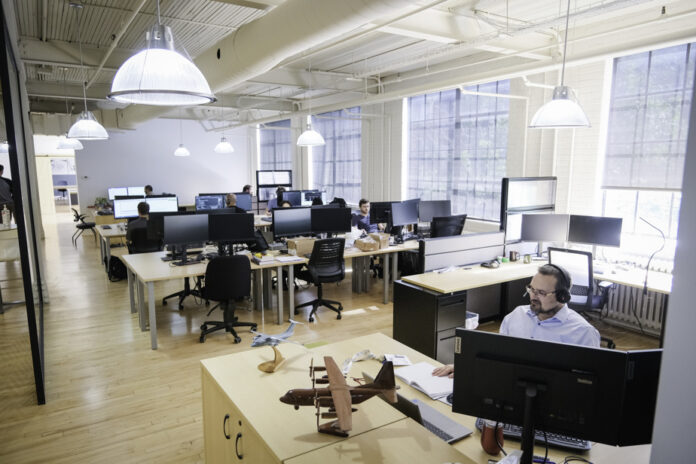When we think about reducing the environmental footprint in the aerospace industry, we often think of fuel or the engine. However, even an avionics software development firm that embarks on eco-responsibility generates positive impacts on other links in the supply chain.
The first cohort of companies in Aéro Montréal’s eco-responsibility program has just ended. And among these 14 SMEs, there are many other firms than those that manufacture aircraft parts…
C3RiOS Systems only saw the light of day two years ago. This Montreal firm of 36 people develops and certifies software that makes up the avionics systems used in the cockpits of airplanes, helicopters and future air mobility solutions.
It is that previously, the development of this software was entrusted to large companies. “The arrival of computers on open platforms has opened up the market,” explains Jean-Philippe Fournier Gaudreau, director of technologies and operations at C3RiOS Systems.
Barely a year after its creation, the SME was part of the first cohort of companies that followed Aéro Montréal’s eco-responsibility program.
After a diagnosis that led to the drawing up of a roadmap, C3RiOS Systems implemented profound changes in its activities. The company now designs the architecture of its software in such a way that certain portions can be easily reused. This reduces the number of development hours, and therefore the energy consumed on premises and in the cloud. And different functions are installed on the same computer, in order to reduce the number of on-board computers in the cockpits.
Also, the firm is now looking at the use of artificial intelligence. “We are looking at how to incorporate an algorithm to optimize flight plans and reduce fuel consumption,” says Fournier Gaudreau. The impact would be outside of the business, but with potentially significant environmental footprint reductions.
The benefits are also economic. “These changes will allow us to be more competitive afterwards,” said Mr. Fournier Gaudreau. That’s the good surprise! Not to mention that potential customers often raise the environmental issue during preliminary discussions, he notes.
This program is essential to ensure that the reality of SMEs is connected with the requirements of contractors, believes Mélanie Lussier, CEO of Aéro Montréal, who plans to open the initiative to 31 other SMEs this year.
The program reimburses part of the diagnosis established by the Montreal firm COESIO, i.e. $30,000. Changes with the fastest wins are rolled out first, with funding for a portion of the improvements, up to 75% of a maximum of $40,000. “It creates new habits until the organization takes ownership,” says Lussier.
And it is obviously on the sum of these changes that the aerospace sector counts to obtain a global impact. “If we want to make a difference, every company in the industry must participate. We all have to do our part,” says Jean-Philippe Fournier Gaudreau.















